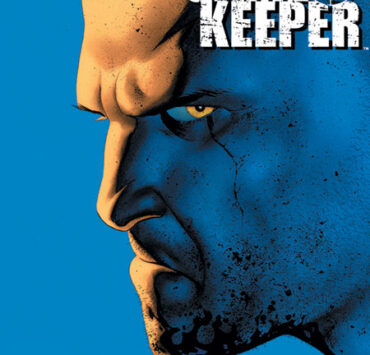On July 9, 2012, a group of more than 20 men publicly molested, manhandled, and stripped a 17-year-old girl outside a bar in an upmarket area in Guwahati, Assam. A local journalist shot this on camera, and the footage went instantly viral across news channels and social media.
The reportage caused widespread uproar only to die out a short while after the prime accused was arrested two weeks later. In this imaginary letter, the Guwahati girl writes to the 23-year-old from Delhi, who succumbed to injuries three weeks after she was gang-raped in a moving bus, last December:

“You were probably a brave girl, but is brave what you wanted to be?”
“I wish to not refer to you in the meaningless euphemisms bestowed by a media and public that has now relegated you to a statistic of the National Crime Records Bureau. You were probably a brave girl, but is brave what you wanted to be? The nauseating sexism that pervades in the name ‘braveheart’ is symptomatic of a society that takes presumptuous refuge in the callous moral high-ground of sympathy. They would never call a male survivor raped by his homosexual partner ‘brave’, for this compassion is best saved for a woman—supposedly the weaker being, and hence, deserving of it. I now possess several such meretricious collectibles, after an evening in July last year, when I was pushed into another life. The same you don’t live to tell the tale of.
“Male Justice. Nothing in my 17 years prepared me for those few minutes of Male Justice. They clutched my hair, groped at my breasts, jostled me around like a sack of sand, spewed expletives, stripped me, and exulted in morbid camaraderie. I wriggled out of the ring briefly and rushed for cover, only to be chased down and decreed to their heels again. I grovelled and pleaded for mercy, amidst flashing headlights and curious passers-by. My utter helplessness fuelled their ravenous need to cow me down, body and soul. Everything they failed at in their lives came alive in triumph when I squatted on the road, defenseless. I was made the picture of their ego: battered, perverse, and precariously awaiting catharsis. The Fury in me now hollers in pain and writhes in disquiet. There shall be no salvage, it shall die a veiled death in my pyre. Male Justice has marched on undaunted, and mutated into more potent and prurient forms.
“That was eight months back. I am no more remembered, except occasionally as a case-in-point, an illustration of what could be the worst (really, what could be the worst?). We have apparently set new standards for remembrance and forgetfulness, since you hit the headlines. For once, stick to the story and follow up on the investigation, pleaded editors and media pundits. This didn’t seem difficult, given the spectacle that unfolded in the capital and elsewhere during the days you were on the hospital bed. Hordes of protestors—mostly the young, like you and me—took to the streets to shout slogans and demonstrate against the establishment. They claimed to speak for you, mirror your agony, called out for lynch-mobbing and castrating the accused. If you could be raped, they could be too (this equation didn’t work out for me; I wasn’t raped in their backyard). They survived lathi-charges, teargas shells, water cannons, and lapped up the fawning gaze of television cameras (I know how well a camera can egg on a frenzied group of people). I was reminded of Captain Smith’s words in the movie Titanic to J. Bruce Ismay (builder of the ship), upon being informed that the Titanic would sink: ‘I believe you may get your headlines, Mr. Ismay.’
“It is early days, but you are not yet a forgotten statistic. There are the satellite reports—the ‘petty traffickers’ —who serve to keep you in public memory. The 14-year-old raped in Jallandhar, the teenager raped in Rayagada, the Gujjar girl raped in Kotdwar, the minor girl raped in Patiala—their stories go off like a broken record, as footnotes on print, and tickers on television; reminders that rape is still ‘resurgent’ India’s newest grouse against a dysfunctional democracy.
“The one upshot is that the enemy has been identified—it is this gargantuan cartel on the other side that includes everyone from auto-wallahs to godmen to pop singers to the Prime Minister. Meanwhile, the street protests have died down, civil society is back to the comfort of routine, and the movement looks hijacked by activists who are forever asking ‘larger’ questions. The angry young sporadically continue the ‘revolution’ on social media, but with a Bush-esque, dichotomous rider: if you don’t speak up, you aren’t fighting. Speaking up counts only if you sound vehement.
“Let me make a profound exception here. I don’t want to sound radical or reactionary. I offer no words of comfort to your parents. I choose not to mimic the madness and convenience of dramatics that masquerade as protests and compassion.
“I know too well by now that rape instantly shatters the mind to smithereens. The fallout for life can be debilitating beyond fathom. No kind of relating can sense or feel the inner silence the survivor begs the space for, except silence itself.
“I narrate the horror of that July evening to let you know that I hear you in silence.
“I refuse to let the white noise outside shut out my inner silent space. I hear you.
“I hear you.”









Very well articulated, Sairam.